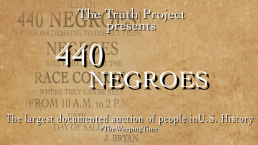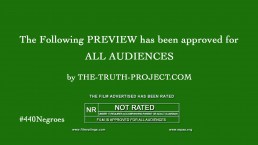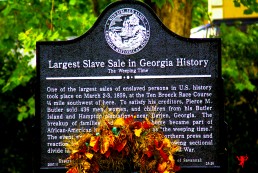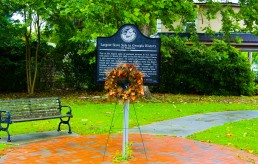This film is completed, contact us to schedule a screening.
August 2019
A word from the director and executive producer:
I recently read an article in The Atlantic titled “The Weeping Time.” Written by Kris Monroe, the article discussed the auction of 440 slaves in Savannah, Georgia in 1859, just prior to the start of the Civil War. At that time, it was billed as the “largest auction of Negroes” in Georgia, but it was, in fact, the largest auction in US history. As I read the story, I realized that this was a significant slice of American history lost and forgotten. I believed the story deserved to be told to a larger audience—in documentary form.
440 Negroes is the detailed account of the people who were sold on March 2-3, 1859, their families cruelly separated forever. In some cases, babies ripped from the arms of their mothers, as told by the eyewitness account of New York Times journalist, Mortimer Thomson, who wrote under the pseudonym Q. K. Philander Doesticks. As I dove deeper into the story, I learned that the sad plight of these 440 people was much larger. Their story begins with the founding of the country, the grandfather of Pierce Butler, who insisted that a specific clause concerning fugitive slaves was inserted into the Constitution. Then after the Civil War, freedom spawned new hope for the four million in the South.
“By the law of war and the order of the President of the United States, the negro is free and he shall be treated as such.” To assist the free persons, General William Tecumseh Sherman issued Special Field Orders No. 15, a promise made by the United States government for agrarian reform to aid formerly enslaved black farmers. “40 Acres and a Mule” was a phrase echoed throughout the South asserting the right of newly freed African Americans to redistributed lands, particularly those plantations where they were enslaved. By the 1870s, blacks had abandoned hope of federal land redistribution and the phrase “40 acres and a mule” came to symbolize that broken promise. In Savannah, and all through the South, economic justice for African Americans was lost.









